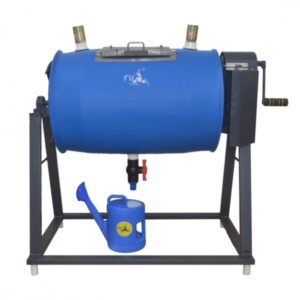Enquire About
Bio-Composters
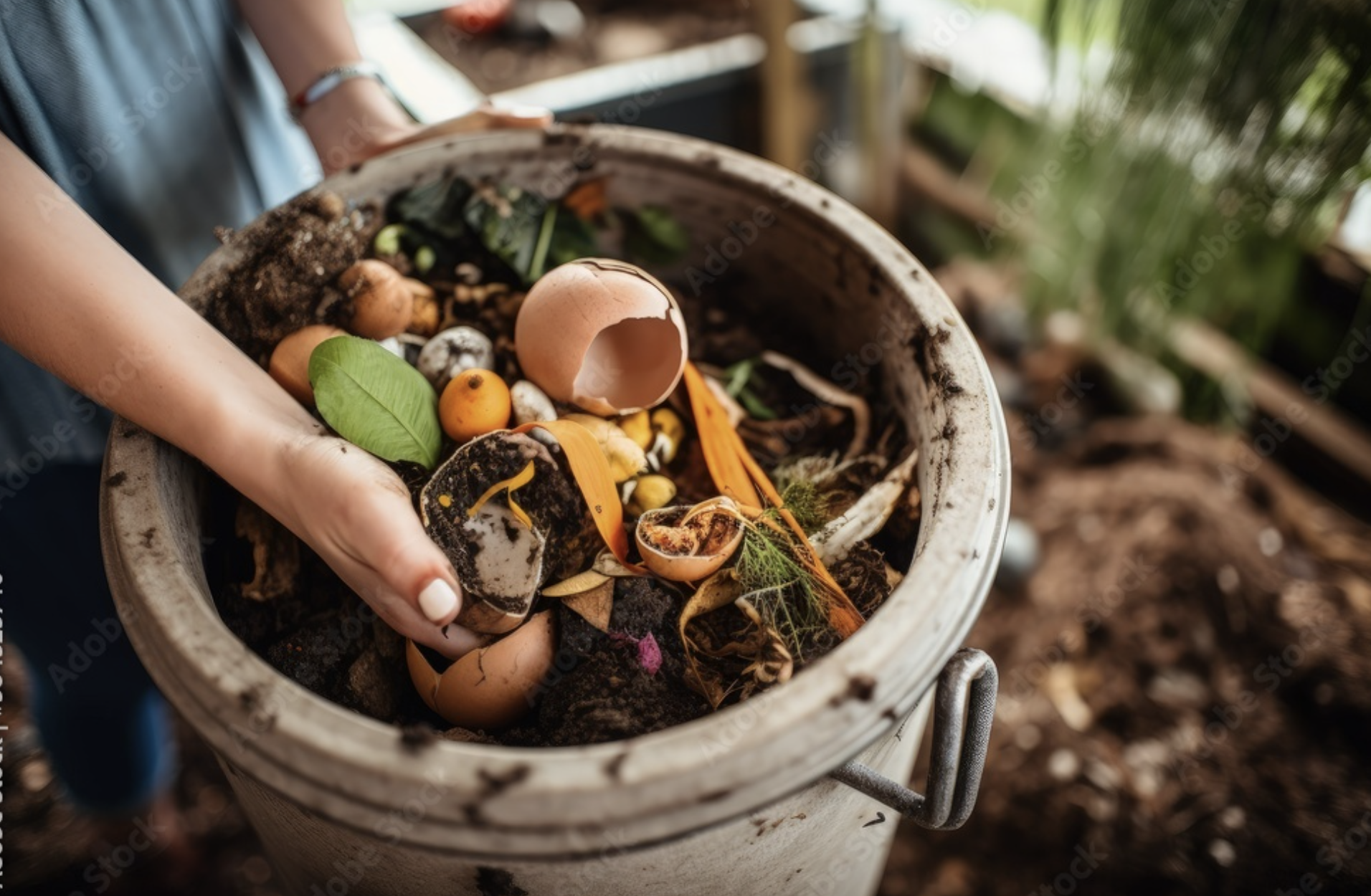
What Is Home
Composting
Home composting is the process of converting organic waste, like food scraps and yard trimmings, into nutrient-rich compost in your own backyard or home environment. This process involves creating a controlled environment where microorganisms break down the waste materials into compost, which can then be used to enrich soil in gardens or for landscaping.
Home Kitchen
Waste Details
Home kitchen waste typically includes fruit and vegetable scraps, eggshells, coffee grounds, tea bags, leftover bread or grains, and non-greasy food scraps like rice and pasta. These materials are rich in organic matter and can be composted to create nutrient-rich soil conditioner for plants.

Fruit and Vegetable Peels

Tea & Coffee Grounds

Cooked food scraps

Bread

Rice

Meat/fish bones

Egg shells

Flowers

Dried leaves
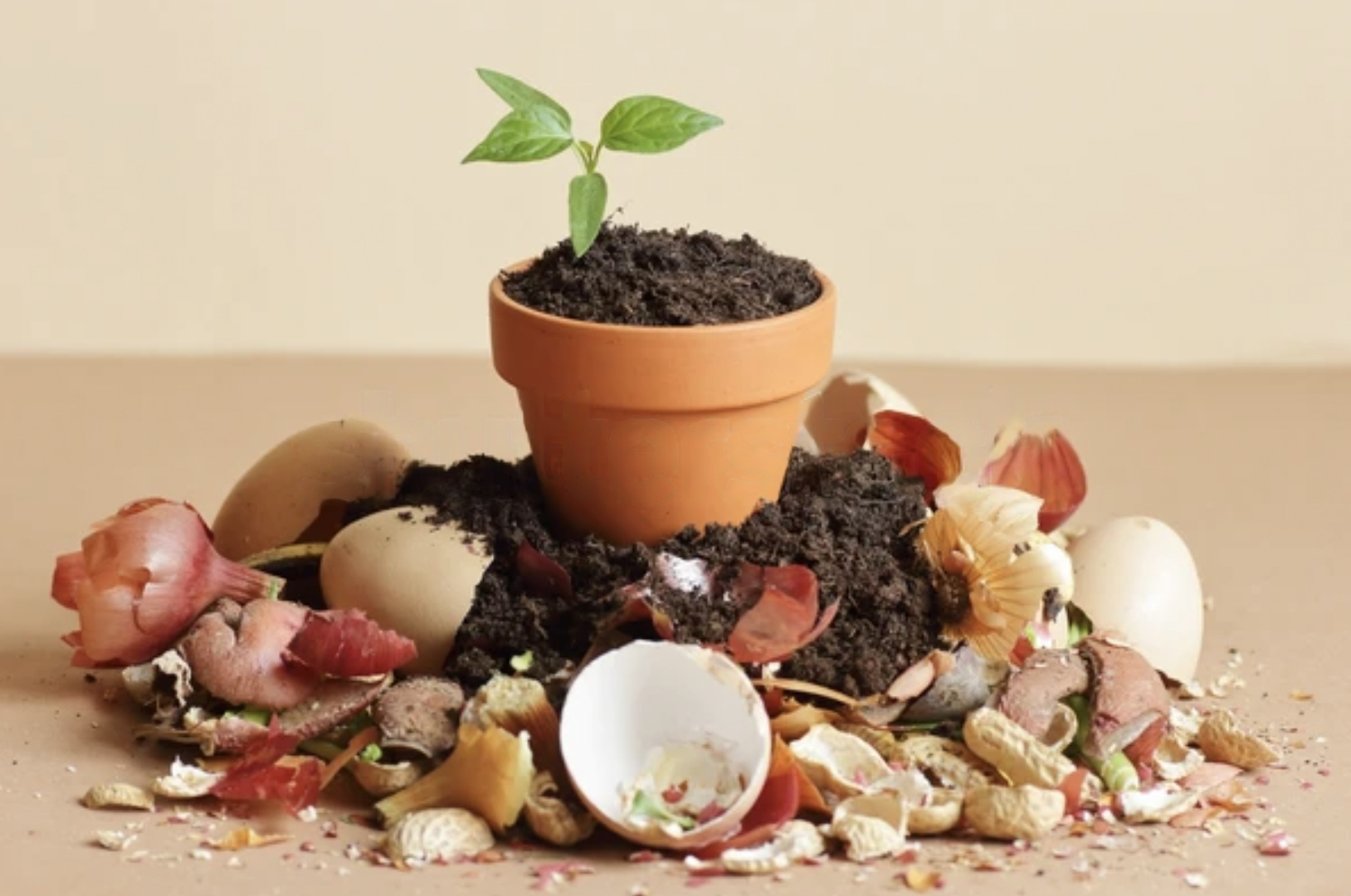
Our
Solution
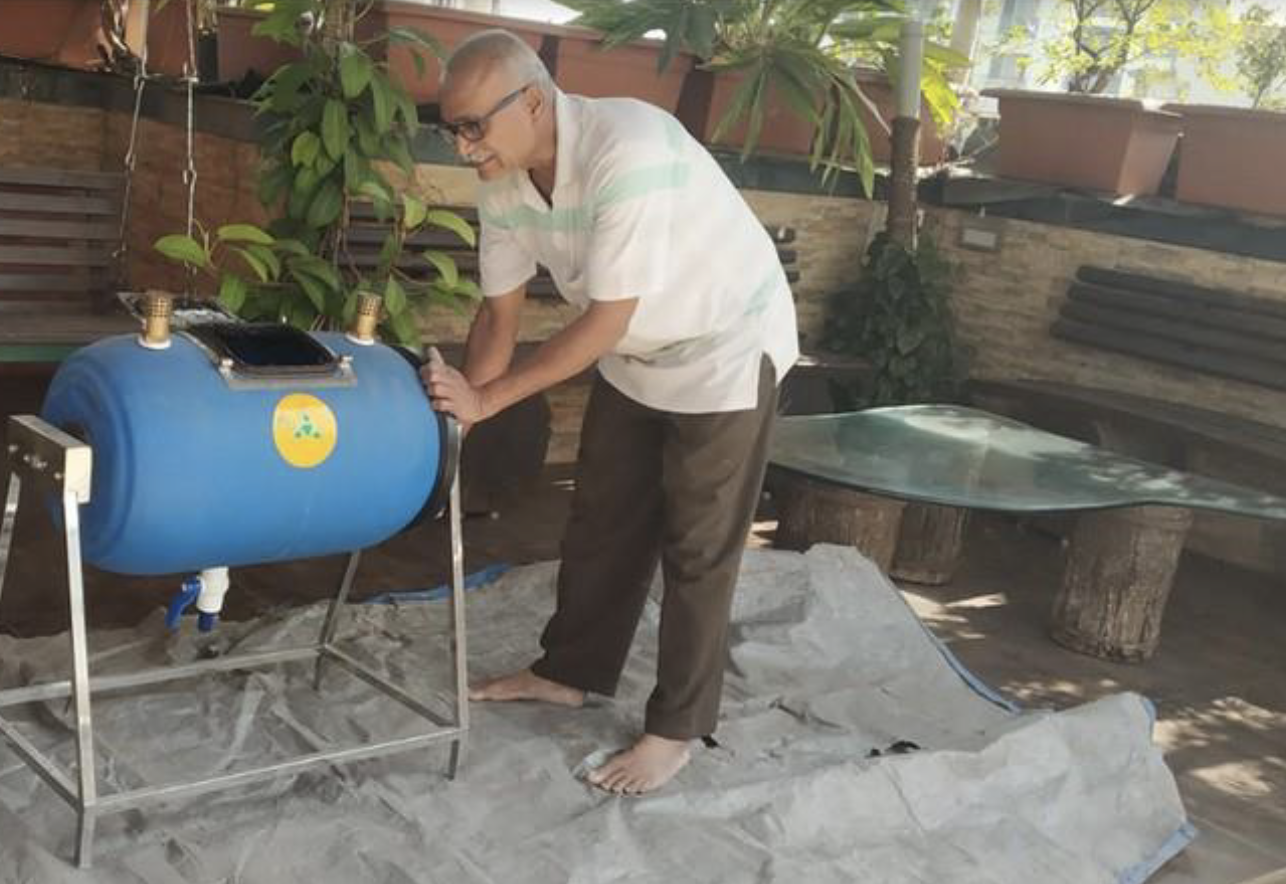
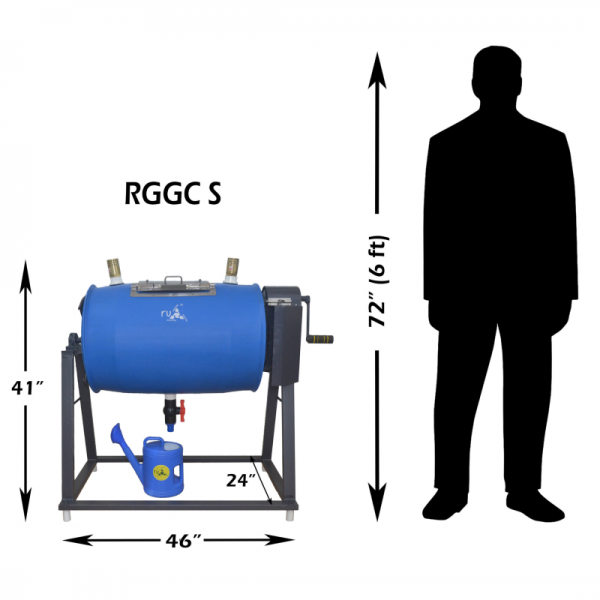
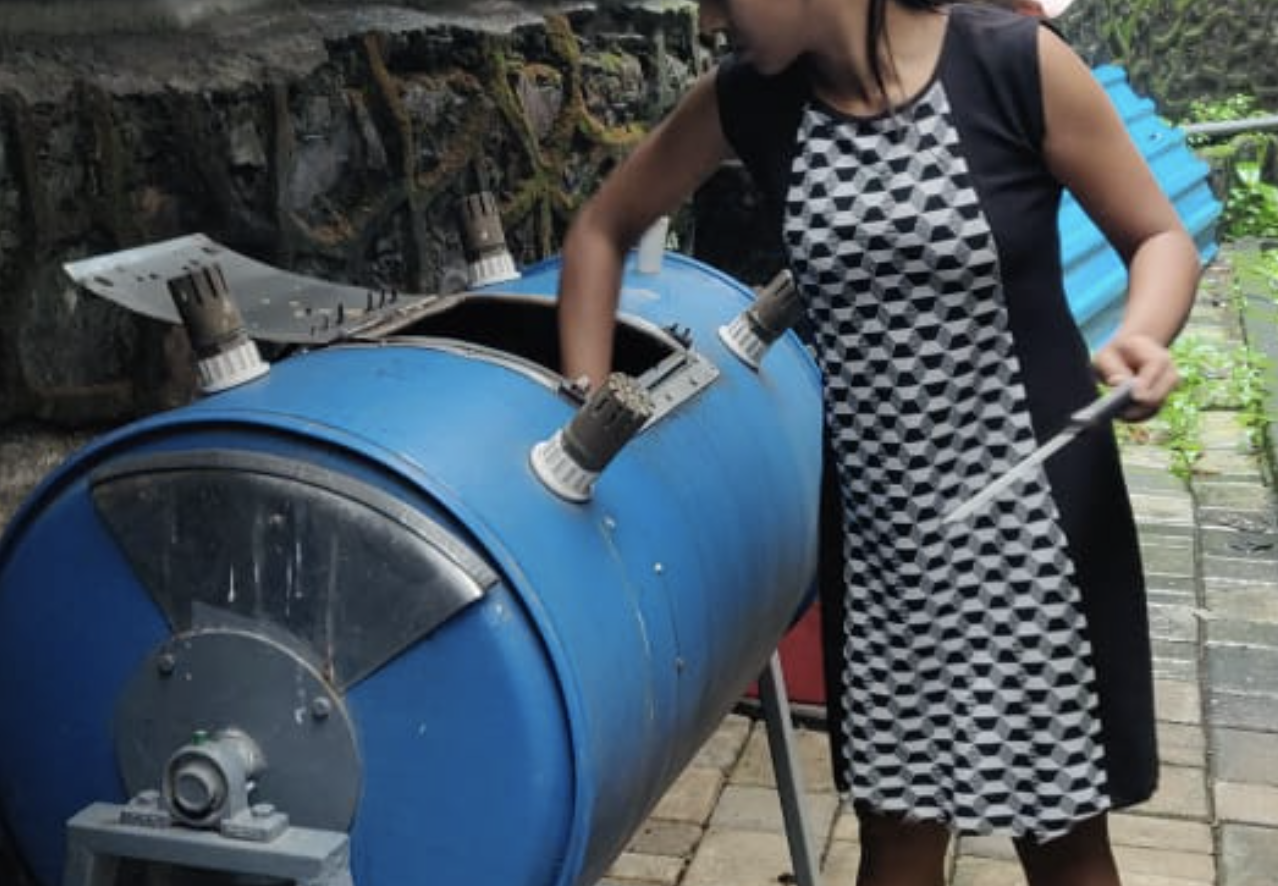

Our
Solution
Our innovative solution, the RURs GreenGold Aerobic Tumbler Biocomposter, is designed with patented, odour free, zero-electricity technology and robust in-vessel features. This composting system offers a convenient and efficient way to compost your biodegradable waste.
Mimics Nature

Easy rotation
Moisture Balance

Low operation
cost
Our Compost health Benefits
Compost enriches soil by providing nutrients, improving structure, and fostering beneficial microbes. It boosts fertility, aids water retention, balances pH, and promotes optimal plant growth.

Nutrient-rich soil

Improved soil structure

pH balance

Microbial activity
.png)
Water Retention

Plant growth
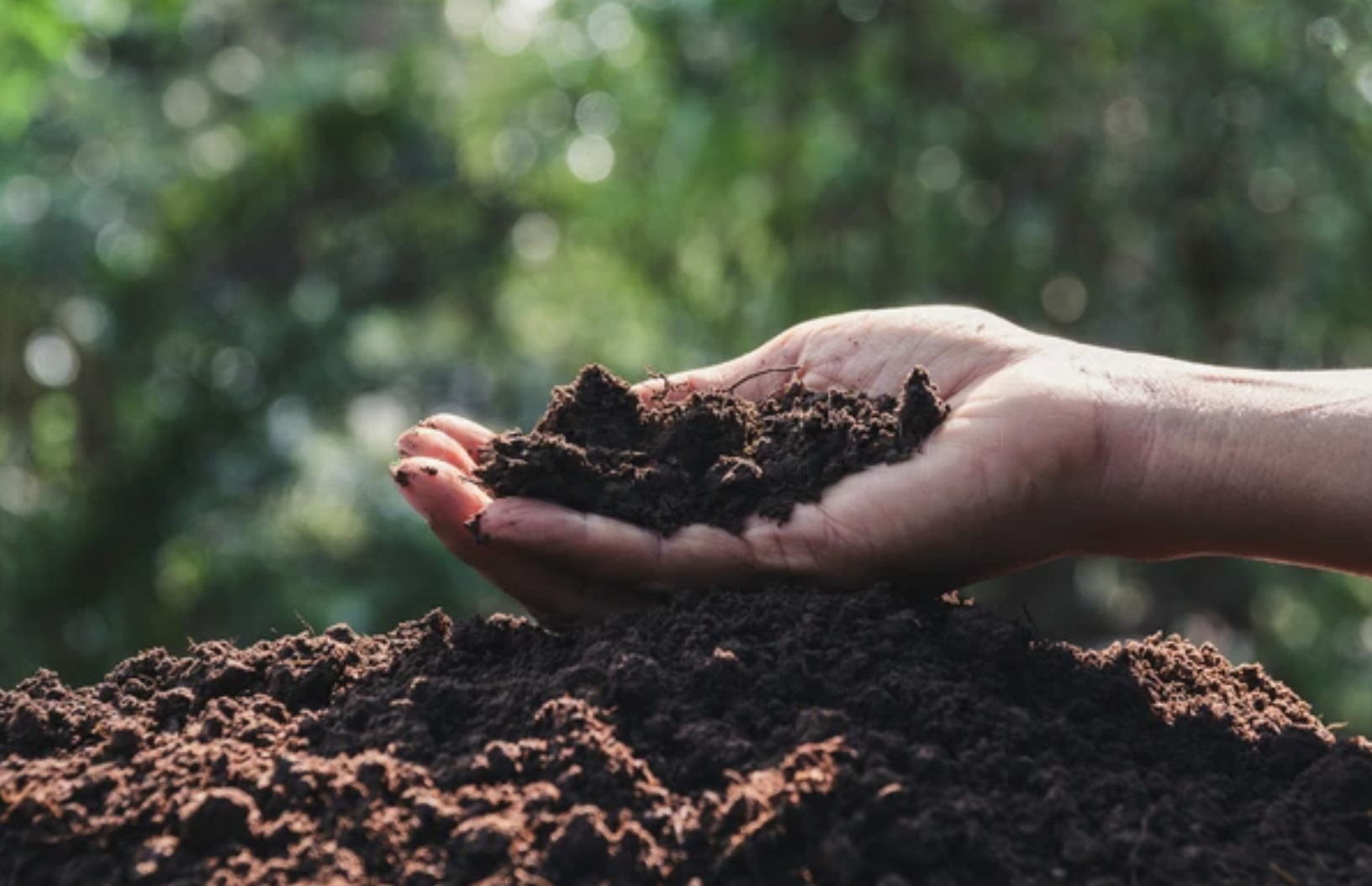
Smart Features

Smart Vents
View Patent +- The brass vents, coated with chromium for superior durability, are integral to the functionality of our RGGC (RUR Green Gold Composter).
- Chromium plating serves as a shield against corrosion, guaranteeing the longevity of these vents. Their primary role lies in facilitating air supply to the compost pile, a crucial aspect of our aerobic composter.
- Continuous aeration, enabled by these vents, ensures the pile remains well-oxygenated, effectively averting the development of foul odors during the decomposition process.
- Brass vents, chromium-coated for durability, are crucial in our RGGC.
- Chromium plating prevents corrosion, ensuring long-lasting performance.
- These vents supply air to the compost pile, vital for aerobic composting.
- Continuous aeration prevents foul odors during decomposition.

Role of Tumbling Mechanism
- Consistent tumbling of the compost pile, ideally conducted at least once a week, stands as a crucial practice for upholding optimal conditions within the RGGC.
- This routine fosters thorough mixing of both older and newer compost materials, thereby facilitating efficient decomposition processes.
- Moreover, the tumbling action serves to break down any clumps that might form within the composter, ensuring a uniform decomposition rate throughout the entirety of the pile.
- At least once a week, is imperative for maintaining optimal conditions.
- This practice promotes thorough mixing of older and newer compost materials, facilitating efficient decomposition
- Additionally, tumbling aids in breaking down any clumps that may form within the RGGC, ensuring uniform decomposition.

Proof of Gold Standard in Compost
View certificate +- Composting epitomizes the principles of a circular economy, wherein waste is transformed into a valuable resource. High-quality compost replenishes soil nutrients, essential for the cultivation of healthy vegetables and crops.
- By maximizing the utilization of compost, we can foster the growth of organic produce, enhancing food security and preserving the integrity of seeds and crops.
- This approach mitigates the reliance on artificial Soil Manure, thereby contributing to sustainable agricultural practices.
- Composting epitomizes the principles of a circular economy, wherein waste is transformed into a valuable resource.
- High-quality compost replenishes soil nutrients, essential for the cultivation of healthy vegetables and crops.
Online Demo of RGGC
Buy Home Composters








1/3
Living in Mangalore with my mom, we've turned our flat space into a small garden, as we couldn't get permission for a terrace garden. Our previous compost bin smelled terrible and was hard to manage. After researching online, I chose the RUR GreenLife Home Composting Kit from Amazon. Its sealed design eliminates odors, and the easy-turn mechanism is a breeze to use. Now, we're growing healthy tomatoes and feel great turning our kitchen waste into valuable compost. The RUR kit has made composting simple and efficient, perfectly fitting our sustainable lifestyle.
Indu Binoj


2/3
I purchased the RUR GreenLife Home Composting Kit directly from their website for my farmhouse, and it's been a fantastic investment. The pricing is right, the product is rust-free and well-made, and the composting process is superb. I love using the revolving tumbling feature, which I handle myself after watching the online demo. Previously, my compost bins emitted a bad odor and were difficult to manage. Now, I produce fresh vegetables and fruits with ease, and I'm thrilled that my waste is no longer wasted.
Deepak Kulkarni


3/3
RUR has revolutionized my terrace gardening. No more messy tub composting—RUR offers a clean, efficient solution. With its filtered water recycling and effortless process, nurturing my plants feels like providing them with the finest cuisine. The results speak for themselves—lush, thriving greenery that proves 'waste' is a valuable resource. RUR elevates caring for my plants to a whole new level, making me appreciate the intelligence of nature even more. For terrace garden enthusiasts, RUR is the ultimate upgrade.
Shika Seigal

FAQ's
Is it important to chop waste before composting?

Not mandatory for all waste but recommended. Chop Watermelon rind, leafy veggie stalk.
Will Mango seeds and hay compost?

Mango seeds take over 6 months to compost, while hay needs to be chopped before composting.
How do I know if my compost is ready?

It will start to smell of fresh soil, turn black and attain soil like structure
How to use the compost?

Put in potted plants or create a bed with 11 soil compost mix and sow seeds. Replenish compost every month.
Is this same as vermicomposting?

No, vermicomposting requires earthworms, while this process is driven by bacteria and fungus
Are there any risks from these bacteria and fungus?

No, they are beneficial organisms for composting and not pathogenic


